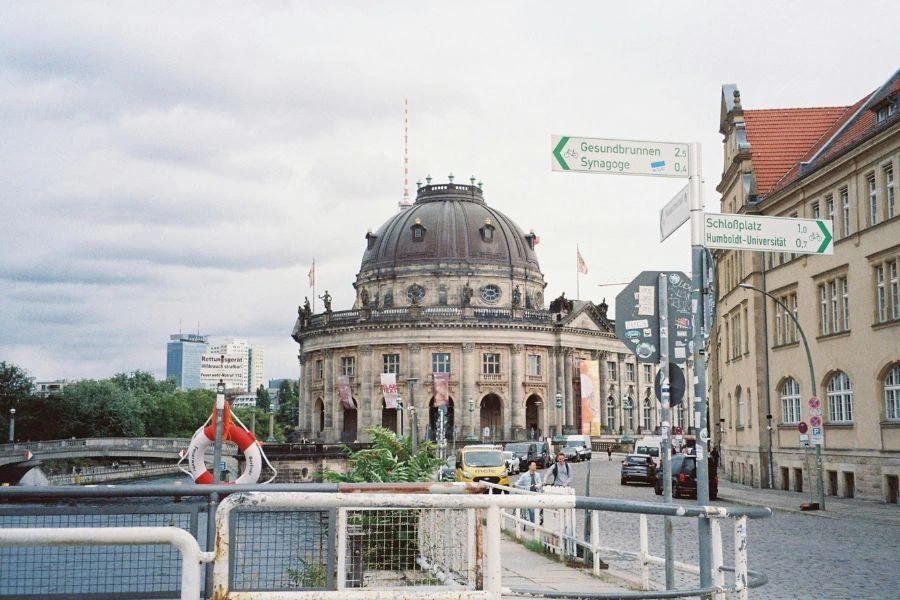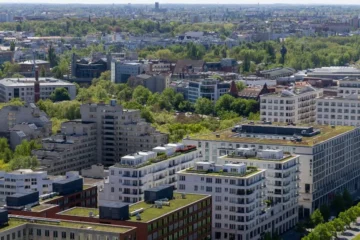Germany’s Freelancer Visa (Freiberufler) is one of the most attractive visa pathways for non-EU nationals looking to work independently in liberal professions such as IT, writing, art, design, education, and more. It offers up to three years of legal residence, access to the Schengen area, a route to permanent residency, and the flexibility to live in some of the most freelancer-friendly cities in Europe. In this guide, we’ll walk you through everything—from eligibility and benefits to step-by-step application instructions and ideal German cities for freelancers in 2025.
Key Takeaways
What Is Germany’s Freelancer Visa?
Let’s get one thing clear: Germany’s Freelancer Visa isn’t your typical one-size-fits-all work permit. It’s designed specifically for individuals in so-called “liberal professions”—think artists, IT consultants, writers, teachers, engineers, and creatives—who work independently without setting up a full-scale business.
Now, how is this different from the Self-Employed (Gewerbe) Visa? Simple: the Freelancer Visa is for professionals who offer services based on their expertise. The Self-Employed Visa, on the other hand, is better suited for entrepreneurs launching businesses with a team, physical location, and revenue goals tied to Germany’s economic interest.
If your career fits into the flexible, project-based, or creative side of things, the Freelancer Visa is your go-to route in 2025.
Who Can Apply for a Freelancer Visa in 2025?
Germany doesn’t just hand out these visas to anyone with a laptop and a dream. You need to belong to one of the recognized liberal professions (Freie Berufe). These include:
- Writers, journalists, translators, and editors
- Photographers, designers, and performing artists
- Software developers, IT consultants, web designers
- Engineers, architects, and scientific researchers
- Teachers, educators, and language tutors
- Healthcare professionals (non-licensed practitioners like therapists or nutritionists)
Your work should be independent, client-driven, and clearly within one of these recognized professions. You also need to prove that your skills are in demand in Germany and that you have real, paying clients or contract offers.
Also Read: Can You Get PR in Germany Without a Lawyer in 2025?
If you’re unsure whether your profession fits the bill, a quick call or email to the local Ausländerbehörde (Immigration Office) in your target city can give you clarity.
What Are the Benefits of the Freelancer Visa?
This visa isn’t just about work authorization—it unlocks a whole world of opportunities in Germany and beyond.
First, it grants you legal residence and freelance work rights in Germany for up to three years initially. Even better? It’s fully extendable, and after five years, you can apply for permanent residency—provided you’ve contributed to the pension or social insurance systems and kept your records clean.
Second, the visa gives you visa-free travel access across the entire Schengen Area. So you can work in Berlin one week and enjoy a short trip to Paris the next—no additional paperwork required.
You’ll also benefit from:
- The ability to sponsor family members under reunification rules
- Eligibility for health insurance and pension contributions
- Potential tax advantages if you’re registered as a freelancer
- A thriving network of co-working spaces and startup hubs, especially in major cities
For global professionals seeking flexibility and stability in the heart of Europe, it’s hard to beat this deal.

Key Requirements You Must Meet
Now for the paperwork (yes, there’s a lot—but it’s manageable with a checklist mindset).
To get Germany’s Freelancer Visa in 2025, you’ll need the following:
- Valid passport with at least 6–12 months before expiry
- Visa application form and biometric passport photos
- A cover letter or personal statement explaining your freelance plans
- Proof of qualifications (degrees, certifications)
- Portfolio or CV to show relevant experience
- Client letters or contracts confirming freelance work or future gigs
- Financial proof (savings or monthly income — at least €1,200/month is advisable)
- Proof of accommodation in Germany (rental agreement, hotel booking, etc.)
- Health insurance valid in Germany (public or private)
- Pension plan proof if you’re over 45 years old
Each document must be translated into German or English and certified if not originally in one of those languages.
Remember, German authorities want to see that you’re not just qualified but also financially independent and insured, with real intent to work, not just visit.
Step-by-Step Application Process
Here’s how the application process breaks down depending on where you’re applying from:
If applying from outside Germany:
- Book a visa appointment at the nearest German embassy or consulate.
- Prepare and submit all your documents.
- Attend the in-person interview and pay the visa fee (around €75).
- Wait for approval (typically takes 8–12 weeks).
- Once approved, travel to Germany and register your address.
- Visit the Ausländerbehörde to get your residence permit card.
If applying from within Germany (e.g., on a tourist visa):
- Make sure your current visa allows switching to a national visa from within Germany.
- Book an appointment at your local Ausländerbehörde.
- Submit your application and documents.
- Get a temporary residence certificate (Fiktionsbescheinigung) while your permit is processed.
- Wait for the final decision—this can take 4–10 weeks, depending on the city.
Pro tip: Berlin is notoriously slow with appointments, while cities like Leipzig or Düsseldorf tend to be faster.
How Much Does It Cost and How Long Does It Take?
Getting your foot in the door isn’t cheap, but it’s not outrageous either.
Here’s what to expect:
- Visa application fee: €75–€100 (depending on the embassy or local office)
- Residence permit fee: Usually an extra €100
- Processing time: Between 4 and 12 weeks, depending on your country and the city you’re applying in
- Permit duration: Initial approval is typically for 1 to 3 years, with the possibility of extension
Ensure that your financial documents demonstrate your ability to cover your expenses during this waiting period. You don’t want your application delayed because of missing bank statements or low balances.
Best Cities in Germany for Freelancers
Where you live in Germany can shape your freelance experience. Here are some top picks:
- Berlin: Europe’s capital of startups, creatives, and innovation. Tons of co-working spaces, meetups, and an international crowd. High demand for digital professionals and artists alike.
- Hamburg: Germany’s media and design hub. Excellent for writers, designers, and tech freelancers who want a more relaxed vibe than Berlin.
- Munich: Ideal for engineers, researchers, and IT consultants. While pricier than other cities, it offers strong infrastructure and close ties to major companies.
- Cologne and Leipzig: Underrated gems with growing freelance scenes, affordable housing, and fewer bureaucratic bottlenecks.
Bonus: All these cities offer excellent public transport, strong internet, and access to international airports, making remote or global work smooth and reliable.
Final Thoughts: Why Choose Germany as a Freelance Base?
Germany’s Freelancer Visa isn’t just about ticking immigration boxes—it’s about building a life and career in one of Europe’s most dynamic economies. With world-class infrastructure, a strong respect for professional autonomy, and a clear pathway to long-term settlement, it’s an ideal choice for independent professionals.
Whether you’re an artist in Berlin, a consultant in Munich, or a language tutor in Hamburg, the opportunities are wide open. With the 2025 updates keeping the process relatively streamlined, now is a great time to prepare and apply.
Start lining up your documents, pin your dream city on the map, and get ready to make Germany your next professional home.
Reference: https://www.germany-visa.org/freelance-visa/





